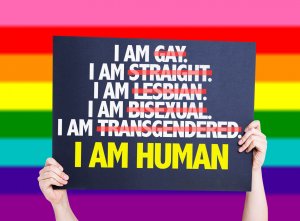Substance Abuse Help for the Transgender Community
 Within the LGBTQ community, those who identify as transgender face unique challenges. These individuals battle discrimination and social stigmas that impact everything from relationship recognition and employment opportunities to debates over which public bathroom they’re allowed use.1
Within the LGBTQ community, those who identify as transgender face unique challenges. These individuals battle discrimination and social stigmas that impact everything from relationship recognition and employment opportunities to debates over which public bathroom they’re allowed use.1
Life as a transgender person creates daily struggles that most people simply can’t imagine. Discrimination, family rejection, and downright hostility make day-to-day life very difficult. Combine this with the lack of a solid support system, and it is no surprise that many transgender individuals turn to alcohol and drugs to dull their pain.2
Daily Challenges of Transgender People
Transgender individuals deal with discrimination and threats of violence on a daily basis, simply for being who they are. In a study involving 28,000 respondents, the U.S. Transgender Survey revealed the following disturbing statistics3:
- 10% of the respondents who are “out” have faced violence from a family member
- 8% of respondents were kicked out of their homes after coming out to their families
- 54% of respondents reported being verbally attacked while in school (K-12) while 24% were physically attacked and 17% were sexually attacked
- 30% of respondents with jobs reported having been fired, denied a promotion, or mistreated due to their gender identity
- 29% of respondents lived at or below the poverty level (compared to 12% of the total U.S. population)
Perhaps most shocking of all, approximately 40% of transgender individuals have attempted suicide at some point during the course of their lifetimes.4 This is close to 9 times the rate of attempted suicide among the rest of the U.S. population.
Many transgender individuals don’t feel safe in their day-to-day lives. In a world where going out alone at night or walking through certain neighborhoods can place them in danger of violence and hate crimes, it is not surprising that anxiety, fear, isolation, and depression are prevalent throughout the transgender community.
Substance Abuse as a Coping Method
 In an attempt to deal with the intense stresses of daily life, many transgender individuals turn to chemical substances. Depressants, including alcohol, opioids, and heroin, are often the drugs of choice as they work well to dull the pain.
In an attempt to deal with the intense stresses of daily life, many transgender individuals turn to chemical substances. Depressants, including alcohol, opioids, and heroin, are often the drugs of choice as they work well to dull the pain.
Since bars and night clubs are considered safe havens and sanctuaries for gay and transgender people, the use of alcohol and amphetamines has also become a widely accepted part of the social culture. In a society where they are often not accepted anywhere else, many transgender individuals are drawn to these bars and clubs. This makes the prospect of getting sober that much more intimidating, as it would require them to distance themselves from one of their only sources of social support.
Co-Occurring Conditions
Co-occurring mental conditions further complicate recovery options for individuals struggling with addiction. Studies suggest that 39% of transgender people suffer from severe mental distress3. Anxiety, clinical depression, and eating disorders are some of the most commonly reported issues.
For substance abuse treatment to truly be successful, it must also address any co-occurring conditions. This makes it even more important for transgender individuals to seek out the right kind of treatment center.
Seeking Transgender-Specific Help
Transgender substance abuse is a serious problem, but help is available. While traditional rehab facilities are often ill-equipped to provide transgender people with the right kind of support, many facilities now offer treatment options specifically tailored to members of the LGBTQ community. Just knowing that these programs are available can remove barriers for many people who may otherwise hesitate to seek out help.
References:
- Bockting, W.O., Miner, M.H., Swinburne Romine, R.E., Hamilton, A., & Coleman E.P. (2013). Stigma, Mental Health, and Resilience in an Online Sample of the US Transgender Population. American Journal of Public Health. 103(5), 943-51.
- Klein, A., & Golub, S.A. (2016). Family Rejection as a Predictor of Suicide Attempts and Substance Misuse Among Transgender and Gender Nonconforming Adults. LGBT Health. 3(3), 193-199.
- National Center for Transgender Equality. (2016) The Report of the 2015 U.S. Transgender Survey Executive Summary.
- Haas, A.P., Rodgers, P.L., & Herman, J.L. (2014). Suicide Attempts among Transgender and Gender Non-Conforming Adults: Findings of the National Transgender Discrimination Survey.

